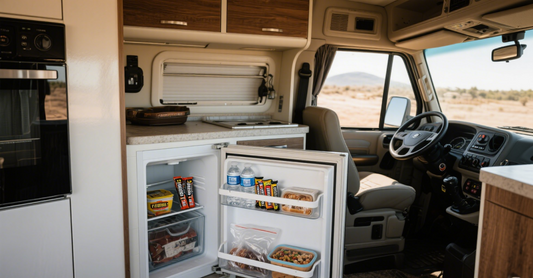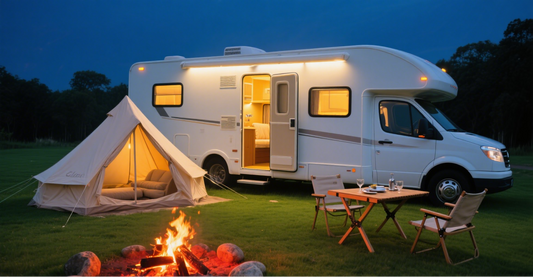Can You Use 12V Lithium Batteries in a 36V Golf Cart?
Upgrading your golf cart's battery system can enhance performance and reduce maintenance, but can 12V lithium batteries work in a 36V golf cart? With lithium batteries growing in popularity for their efficiency and durability, this question is common among golf cart owners. This article will explain how to use a 12V lithium battery in a 36V system and provide practical guidelines to ensure optimal performance from your golf cart. Whether you are a weekend golfer or a fleet manager, we can provide clear and professional advice to guide you in your decision.


Understanding 36-Volt Golf Cart Battery Systems
Golf carts typically operate on a 36-volt system, requiring a battery configuration that delivers 36 volts to power the motor and controller.
Common setups include six 6-volt deep cycle batteries, four 8-volt batteries, or three 12-volt batteries wired in series, where the positive terminal of one battery connects to the negative terminal of the next, summing their voltages (e.g., 6V × 6 = 36V).
The battery bank must meet the cart's voltage and amp-hour capacity needs for consistent power and smooth operation.
Deep cycle batteries are essential for golf carts, as they handle deep discharging and repeated discharge cycles, unlike car starter batteries.
Lithium batteries, especially lithium iron phosphate (LiFePO4), are becoming increasingly popular with vehicle owners who have traditionally used lead-acid batteries due to their lightweight design and longer cycle life. Understanding these battery types and configurations is critical to evaluating whether a 12V lithium battery can be used in a 36V golf cart.
Can 12V Lithium Batteries Power a 36V Golf Cart?
Yes, three 12V lithium batteries can power a 36V golf cart when connected in series to achieve 36 volts (12V + 12V + 12V = 36V).
However, the lithium batteries must be deep cycle golf cart batteries designed for sustained power output, not starter batteries, to meet golf cart discharge cycles.
All batteries in series should be identical in brand, amp hour capacity, and age to avoid voltage imbalances that could reduce efficiency or damage the battery bank.
The Battery Management System (BMS) in lithium batteries protects against overcharging, over-discharging, and short circuits. For a 36V golf cart, each battery's BMS should support at least a 100A continuous discharge rating, typical for most models.
Please note: A lithium-specific charger is often required, as lead-acid chargers may not match lithium charging protocols. Some golf carts may need controller adjustments, so consult your cart's manual or a professional technician.
How to configure 12V Lithium Batteries for a 36V Golf Cart
Proper configuration of 12V lithium batteries ensures a safe and efficient 36-volt system. Follow these steps, and these steps create a reliable 36-volt system aligned with your golf cart's specifications.
- Series Connection: Connect three 12V lithium batteries in series by linking the positive terminal of one battery to the negative terminal of the next. Use 4 AWG cables to handle current flow and secure connections to prevent power loss or short circuits.
- Amp-Hour (Ah) Requirements: Verify your cart's amp-hour needs, typically 100-200Ah for 36V systems. Three 12V batteries with 100Ah each provide 100Ah at 36V. For higher capacity, use parallel connections (e.g., two 50Ah batteries in parallel = 100Ah, then three pairs in series for 36V and 100Ah).
- Space and Ventilation: Ensure the battery compartment fits the batteries with adequate ventilation to manage minimal heat from lithium batteries. Secure batteries to prevent shifting.
- BMS Compatibility: Confirm each battery's BMS supports series connections and balances cells across the battery bank for even charging and discharging.
- Safety Precautions: Use insulated tools, wear protective gear, and check for BMS error codes or battery damage before installation. Professional installation is recommended due to lithium's complexity to avoid short circuits or overheating.
Benefits of Using 12V Lithium Batteries in a 36V Golf Cart
- Lightweight Design: Lithium batteries are 70% lighter than lead-acid, reducing cart weight to 60-100 lbs for a 36V setup versus 200-300 lbs.
- Extended Cycle Life: Lithium batteries, like Temgo's LiFePO4, provide over 4,000 deep cycles at 80% depth of discharge (DOD), compared to 200-500 cycles for lead-acid, lasting up to 5-10 years.
- Fast Charging: Lithium batteries charge to 80% in about 1 hour with a compatible charger, versus 6-8 hours for lead-acid source: Golf Cart Resource.
- Maintenance-Free: Unlike lead-acid batteries requiring regular maintenance (e.g., watering, terminal cleaning), lithium batteries are maintenance-free.
- Consistent Power Output: Lithium batteries maintain stable voltage, ensuring steady cart performance throughout discharge cycles.
- Environmental Benefits: Lithium batteries are recyclable and have a lower environmental impact than lead-acid batteries.
Disadvantages Of Using a 12V Lithium Battery In a 36v Golf Cart
- Higher Upfront Cost: A 36V lithium setup costs $800-$1,200, versus $300-$600 for lead-acid, though savings of $1,000+ over 10 years offset this source: Lithium Battery Power.
- Installation Complexity: Configuring three 12V lithium batteries requires precise series or parallel connections and BMS synchronization, often needing professional expertise. Therefore, it is recommended to buy a 36V lithium battery to power your golf cart more stably.
- Temperature Sensitivity: Lithium batteries require thermal management, such as Temgo's 12V lithium battery self-heating feature, for optimal performance in extreme climates.
Comparison of Golf Cart Battery Types
When choosing golf cart batteries, consider your budget, usage frequency, and performance needs. The table below compares golf cart battery types to guide your decision:
| Battery Type | Cost (36V setup) | Lifespan (Cycles) | Weight (36V) | Maintenance | Charging Time |
|---|---|---|---|---|---|
| Lead-Acid | $300-$600 | 200-500 cycles | 200-300 lbs | High | 6-8 hours |
| AGM | $500-$800 | 300-700 cycles | 150-200 lbs | Maintenance-free | 5-7 hours |
| Gel | $600-$900 | 300-700 cycles | 150-200 lbs | Maintenance-free | 5-7 hours |
| Lithium (LiFePO4) | $800-$1,200 | 3,000-5,000+ cycles | 60-100 lbs | Maintenance-free | ~1 hour (80%) |
Lead-acid batteries are cost-effective for occasional users but require regular maintenance and have a shorter lifespan. AGM and gel batteries offer a maintenance-free alternative with moderate durability, suitable for users seeking a balance between cost and convenience. Lithium (LiFePO4) batteries, despite their higher upfront cost, provide superior cycle life, lightweight design, and fast charging, making them ideal for frequent users or those prioritizing long-term efficiency. Selecting the right deep cycle golf cart battery depends on aligning these factors with your golf cart's demands and your maintenance preferences.
Alternative: Using a Single 36V Lithium Battery
For golf cart owners seeking a simpler and more efficient power solution, a single 36V lithium battery offers a compelling alternative to configuring multiple 12V lithium batteries.
Unlike the series connection required for three 12V batteries, a single 36V lithium battery, such as Temgo's 36V 100Ah LiFePO4 model, is designed specifically for 36-volt systems, delivering 3.84kWh of energy and supporting over 5,000 deep cycles at 80% depth of discharge (DoD). This option eliminates complex wiring, reducing installation time and the risk of connection errors, making it ideal for users prioritizing convenience and reliability.
A single 36V lithium battery saves space in the golf cart's battery compartment, as it requires no additional series or parallel connections, unlike multiple 12V batteries.
Its compact design ensures compatibility with major golf cart brands like Club Car, Yamaha, and EZGO, though users should verify tray dimensions to confirm fit.


The built-in Battery Management System (BMS) provides advanced safety features, including thermal protection, overcurrent safeguards, and cell balancing, ensuring consistent power output and protection against overcharging or short circuits. Additionally, a 36V lithium battery requires a compatible charger, such as Temgo's 42.6V 20A model, to optimize charging efficiency and maintain battery health.
While the upfront cost of a single 36V lithium battery (typically $800-$1,200) is comparable to a 12V lithium setup, its streamlined installation and maintenance-free operation offer long-term value.
These batteries are widely available through reputable suppliers like Temgo, which provides free shipping and a warranty service, ensuring reliability for frequent users.
Conclusion
Using 12V lithium batteries in a 36V golf cart is feasible with proper series configuration, compatible BMS, and sufficient amp-hour capacity. These batteries offer lightweight design, extended cycle life, and maintenance-free operation, though higher costs and compatibility challenges require planning. A single 36V lithium battery simplifies the process for reliable performance.
For a trusted solution, Temgo's LiFePO4 batteries provide 4,000+ cycles, IP65 waterproofing, Bluetooth monitoring, and free shipping, ensuring compatibility with Club Car, Yamaha, and EZGO. Their 36V 100Ah battery delivers 30-40 miles of range with a 42.6V 20A charger, backed by a warranty and customer support.


